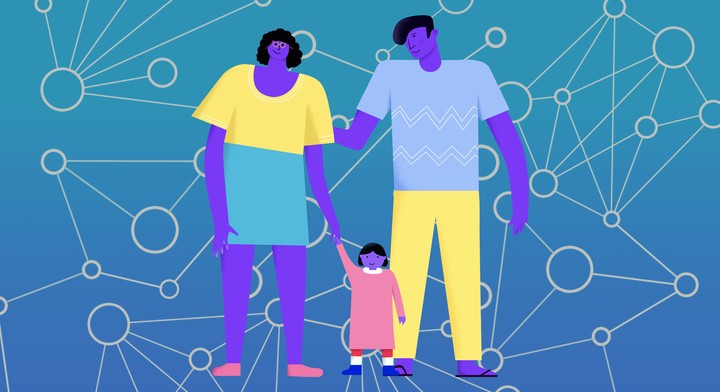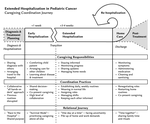Family Resilience Technologies

During a crisis, such as the hospitalization of a child, families must adjust and adapt, taking on new roles and staying connected while they coordinate care and support each other. Because family members must add this care work to their other responsibilities, such as maintaining home and work duties, caregiving coordination is often asynchronous and geographically distributed, with limited opportunities for in-person collaboration. A major protective factor during a family crisis is the family’s resilience, or ability to withstand and rebound from disruptive life challenges, emerging strengthened and more resourceful. Resilient families stay connected and flexibly adapt to changing circumstances; their communication is clear and focused on problem solving, and they cultivate a shared positive outlook.
Systems that enable Computer-Supported Cooperative Work (CSCW) seem like a natural fit for family resilience: they can transcend space and time to help people stay coordinated and connected while performing care work, and they are widely deployed. However, there are few examples of CSCW systems for caregiver coordination within a family. For example, online health communities primarily connect a single caregiver to other caregivers from other families. Social networks such as Facebook allow caregivers to broadcast updates. Sites such as CaringBridge allow a primary caregiver to request and manage support from wider networks of care such as friends and community members. CSCW technologies are also not widely adopted by families in crisis: in my NSF-funded preliminary work studying the technology needs of parenting couples, most families facing a health crisis used little more than text messaging and phone calls to manage within-family care. Furthermore, CSCW systems that do support small-group work are designed using assumptions that may not hold true in the case of family health crisis. Families coordinating care cannot count on workplace conventions such as shared work hours, well-defined roles and responsibilities, and work/life separation. These families also encounter particular barriers to successful collaboration. In preliminary work studying parenting couples, I found that the current lack of technological support for caregiver coordination 1) exacerbates information disparities, especially between the ‘primary’ caregiver and other caregivers, creating information bottlenecks and stress on both sides 2) limits families’ ability to dynamically respond to changing conditions, and 3) reduces opportunities for emotional support, increasing caregivers’ sense of isolation.
My long-term goal is to uncover fundamental sociotechnical principles that inform the design of next- generation caregiving coordination technologies for family resilience during a health crisis. This fundamental Human-Computer Interaction research will deepen our understanding of collaborative technologies for family-centered networks of care while also generating translatable knowledge with high potential for societal impact.
This project is funded by a 5-year CAREER award from the National Science Foundation.
